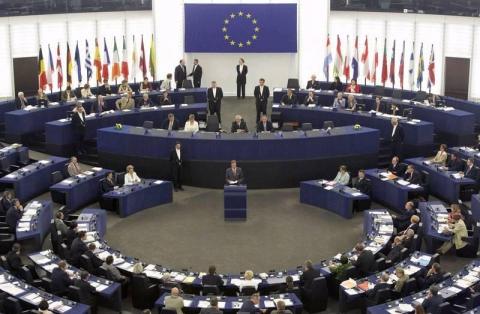Report critical of European Parliament spending 'watered down'

The European Parliament's two largest groups, the European People's Party and the Progressive Alliance of Socialists and Democrats, joined forces to suppress a report into the management of the parliament's enormous €1.6bn budget. Some of the most critical aspects of the report were removed from the final draft.
The report was compiled by Belgian Green MEP Bart Staes as an attempt to raise questions about the management of the parliament's budget. The European Parliament's smaller groups are expected to band together in an attempt to reintroduce deleted elements when plenary votes on the report next Wednesday.
The Greens are tabling 27 amendments in an attempt to put some substance back into the report. It is expected they will be supported by other small parties, and it is hoped that at least some of the details of the report will be reintroduced. However, it is unlikely that they will have any major success and, indeed, Staes has dismissed the attempt as a "token" gesture.
Following the committee vote on the amendments, Staes said: ""I drafted this report as a positive approach to give parliamentary authorities all the necessary tools to ensure that in 2014, when the next European elections are due, no big or small scandal will tarnish once again our image."
"I thought I had broad support for these proposals to ensure transparency, correct transactions, and sound financial management of parliament's expenses...but no less than 202 amendments were tabled, most of them with the aim of deleting the most critical parts of this report."
Passages cut from the final draft were said to include a paragraph stressing that European citizens have a right to be informed about MEP use of public funds and an undertaking that taxpayers would not have to cover a €123m actuarial deficit.
Criticisms of the EU's democratic deficit and level of accountability have consistently dogged the institutions of Europe. These criticisms are given weight by the suppression of this report, and as it stands the directors of the parliament's different departments will continue to sign off on their own spending without the need for second opinions. This lack of close budgetary control inevitably leads to waste and mismanagement of public funds.
With Europe struggling to combat the economic downturn, and vast sums committed to intervening in the near bankrupt Greek economy, it seems an appropriate time to cast a critical eye over the vast spending in the European Parliament. However, Europe's 'grand coalition' deemed otherwise and aim to continue conducting parliamentary business with, as Staes said, the "least transparency possible".
The plenary vote on the report is due to take place next Wednesday, 21 April 2010 in Strasbourg between 9am and 11.50am local time. It can be watched live here.
